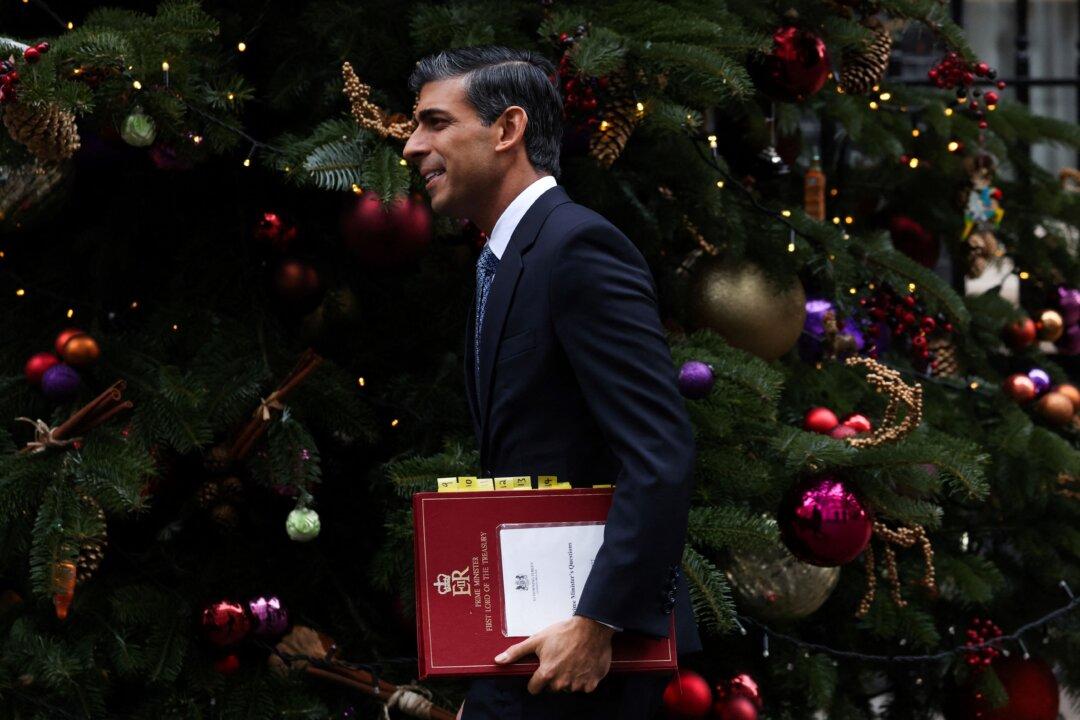UK Prime Minister Rishi Sunak has made surprise phone calls to public servants thanking them for their “selflessness,” as the public sector continues to suffer disruptions amid a wave of industrial actions.
In footage published on Dec. 23, Sunak phoned the crew of the naval ship HMS Protector, British diplomats in Pakistan, Somalia, and Ukraine, as well as holiday activities and a food programme in London.





